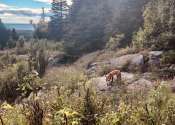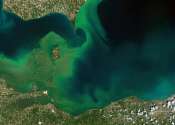Wolves reintroduced to Isle Royale temporarily affect other carnivores, humans have influence as well
In a rare opportunity to study carnivores before and after wolves were reintroduced to their ranges, researchers from the University of Wisconsin–Madison found that the effects of wolves on Isle Royale have been only temporary. ...









